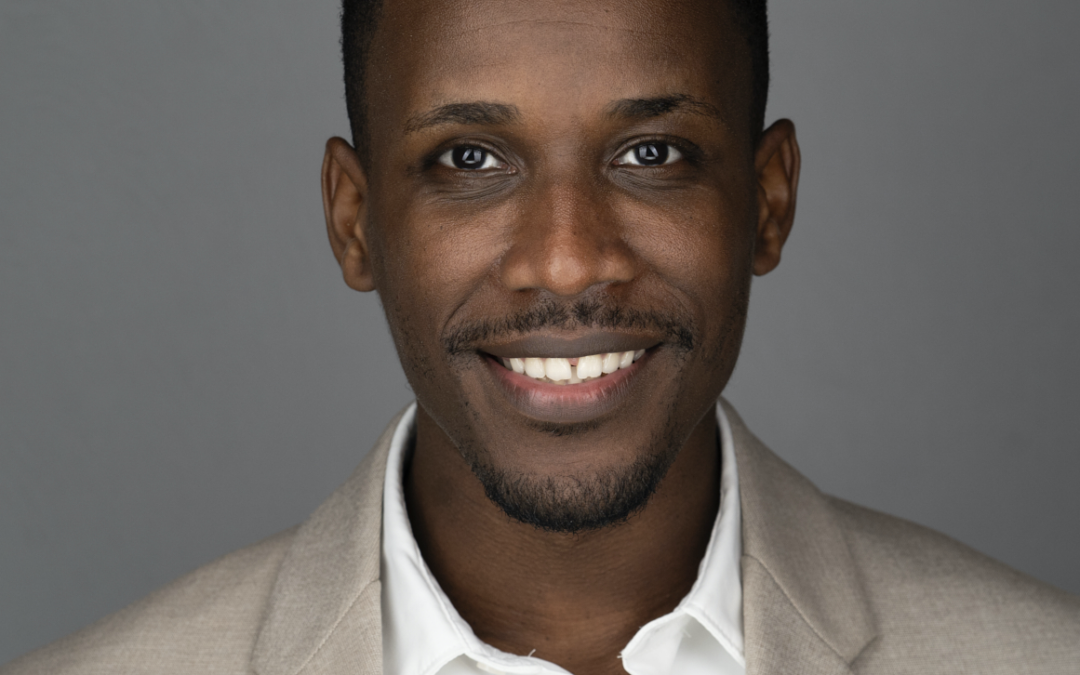Podcast: Play in new window | Download
Subscribe: Spotify | Email | RSS
On this week’s episode of The Leadership Habit podcast, Jenn DeWall talks to organizational psychologist Joshua Washington about how to have mission-critical conversations. These are the key conversations we have– or don’t have– every day. What conversations should you be having on your team to keep everyone focused on the mission of your organization?
Meet Joshua Washington, Organizational Psychologist
Joshua Lee Washington is an expert, organizational psychologist and human behavior specialist who coaches and trains executive leaders on his proprietary system called the Mission Critical Performance Method. He helps businesses maximize the value within their people by translating the scientific study of human behavior into strategies and solutions for higher performance and productivity.
Using his Mission Critical Performance Method, Joshua teaches people how to use three key drivers, connection, conversations and cultivation, to drive performance at work and in life.
What are Mission-Critical Conversations?
Mission-critical conversations are those that have the biggest impact on your organization. First and foremost, these are the conversations that focus on defining the mission of the business, the objectives you are trying to achieve, and the key drivers of those results. Once you have those factors defined, you can identify the conversations that you need to have and need to keep having continuously to reach those objectives.
The Problem with Workplace Conversations
As the episode opens, Jenn welcomes Joshua to the show, and they dive into a discussion about the conversations we have at work, that we need to have at work, and that we are not having at work. Jenn asks Joshua what he thinks is the biggest challenge with workplace conversations today.
Joshua explains, “I would say the first one that if I had to bet my, my, my dollar on is conflict. That’s the one that gets avoided the most. Whenever I’m doing a keynote, I tell people that conflict is like that banana that sits on the top of your counter. And the longer you leave it, the browner it gets, and then one day you look up, and you’re like, that’s disgusting, right?
That’s what happens with conflict. We think that we are addressing the conflict by avoiding it because that will, you know, avoid the uncomfortable feelings of addressing conflict and the discomfort of having to potentially, you know, deal with some things that are not pleasant. But all that happens if you take that route is you end up just amplifying it. And so that’s usually what I focus on.”
Conversations and Conflict
Jenn agrees that conflict avoidance can negatively affect our ability to have productive conversations. Handling conflict requires having these mission-critical conversations, but that can be scary! She asks Joshua what impact not having these difficult conversations can have on the workplace.
Josh replies, “Well, let’s keep going with the banana analogy, right? You know, let’s keep flowing with that one. So the banana is your environment. It’s not even really the conflict, it’s your environment. What happens is the environment begins to suffer.
And I love what you said, Jenn. That’s when the flies begin to come in. The flies can be like the gossip that takes place when people are not focused on their work. People are coming in with low energy because of the energy of the environment. It sucks all of their energy out.
And so that’s really one of the things I think the biggest impact though, is that trust is lost. When you don’t address conflict, you risk trust. And the greater the risk is, the more susceptible you are to relationship termination. And there are people in workplaces right now that don’t look at each other, they don’t talk to each other, they avoid each other.
It’s because that relationship has been terminated and nothing kills a culture. Nothing kills a work environment faster than when relationships are being terminated just because there is unresolved conflict.”
Improving Communication with M.I.C.R.O. Conversations
Later in the episode, Joshua explains his framework for having mini conversations to improve communication and connection in the workplace. He explains that M.I.C.R.O. stands for:
- Mood
- Intention
- Challenge
- Results
- Options/Opportunities
Mood
He explains, “It is about training people and coaching people how to go into these critical conversations and have a plan. And just for example, mood. You may not want to have a critical conversation right before lunch because the chance of that conversation being successful depending on what it is, is low.
Why? Because that’s the time where our energy is really driven towards hunger. The term hangry is there for a reason! Right?
But even deeper than just your mood or your hunger for lunch is just the environment. There are certain moods within the overall ecosystem of a business, right? There are certain times of the year that you don’t wanna have certain conversations because it’s not appropriate.
So it’s knowing time and place. We start with mood. Just to give you an example of how we’d walk that framework out.”
Intention
Next, they discuss how intention plays into M.I.C.R.O. conversations. Joshua explains that once you are sure all the parties in the conversation are in the appropriate mood, then you must state your intention for the conversation. Your intention is the overall goal for the conversation and how you can mutually benefit from having the conversation.
Challenge
Then, Joshua explains that after the intention of the conversation is set, you can explain the challenge you are trying to overcome. This is when you address the barrier to achieving the results you want to invite discussion about how to resolve the issue or solve the problem.
Joshua warns that when you are discussing the challenge, it is important to avoid making it personal. Try to stay focused on actions and behaviors, and don’t make comments about the person’s attitude or call them names like “lazy”, etc. Personal comments will only make people defensive and shut down the conversation.
Results
Next, Joshua explains, “The challenge and the result really go together. Because once you mention, okay, here’s the behavior or the action that, that I’m seeing that that’s what the challenge is, is the behavior or the action, the result is what that thing causes.
So let’s say, Hey John, this was said in a meeting last week. And that is the challenge. This thing that was said, the result of it was that I left there feeling that I took a shot to my self-confidence. It really made me feel, you know, inadequate in my role.
And this takes a level of maturity to really walk through this to be able to say, okay, why didn’t I like what that person said? What did it cause in me?
And so that’s very different, Jenn. Notice it’s very different from ‘you said that, and it made me feel bad’ when that doesn’t tell anybody anything.
But if you say, Hey, when you said this, when this particular thing was said, this behavior was demonstrated, it left this result. I kind of felt this way, sat at my desk and wasn’t able to really focus for a little bit. And again, I know that’s not your intention, but this is where it resulted. And that’s how we get into that result portion of the walking through that at a micro framework.”
Options/Opportunities
Finally, Joshua explains that the last part of any M.I.C.R.O. conversation is to discuss the options for going forward and avoiding similar issues in the future. This part of the conversation is an opportunity to collaborate on solutions to create stronger connections.
Final Thoughts from Joshua
At the close of the episode, Joshua leaves our listeners with some final thoughts, saying, “This is a leadership-focused podcast. And so my final thought is I want to thank the leaders who are treading out there. This is not an easy environment to lead in.
There are so many things going on, and the line between personal and professional in the workplace has been blurred. And so it’s calling upon leaders to really increase their skillsets and really increase their equipping within the workplace. But I will say from our conversation today, grace is a great place to start.”
Where to Find More From Joshua Washington
To learn more about mission-critical conversations and M.I.C.R.O. conversations, be sure to listen to the full episode on your favorite podcast streaming service! You can also connect with Joshua in the following places:
- Email Joshua at joshua@leemalveaux.com
- Visit his website: leemalveaux.com
- Connect on LinkedIn





